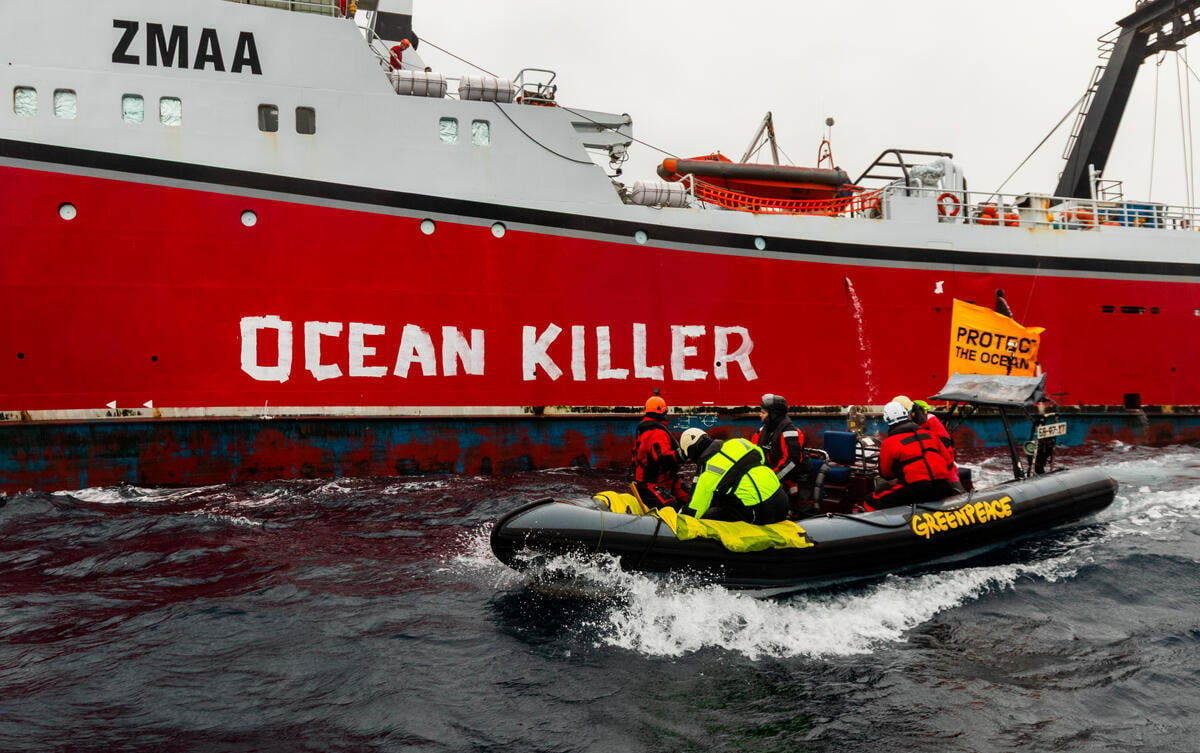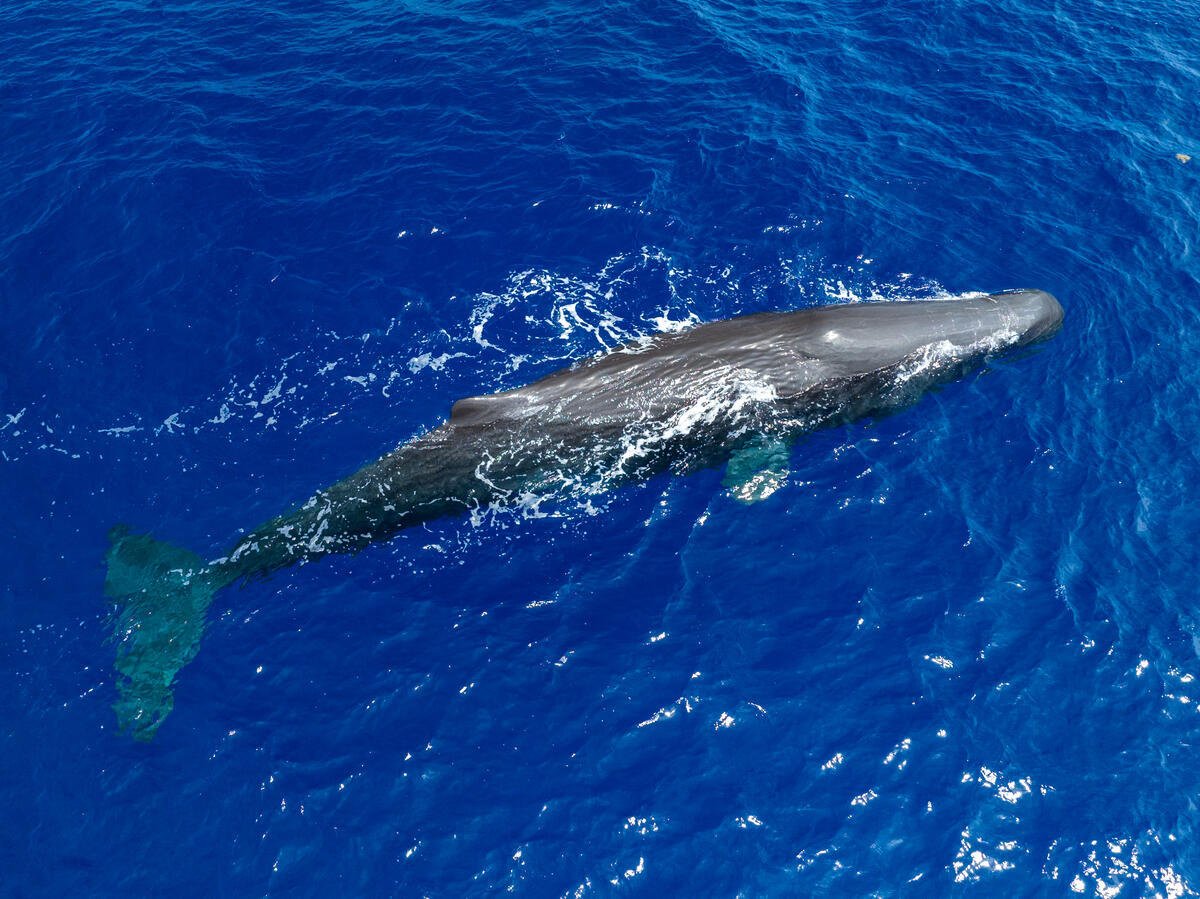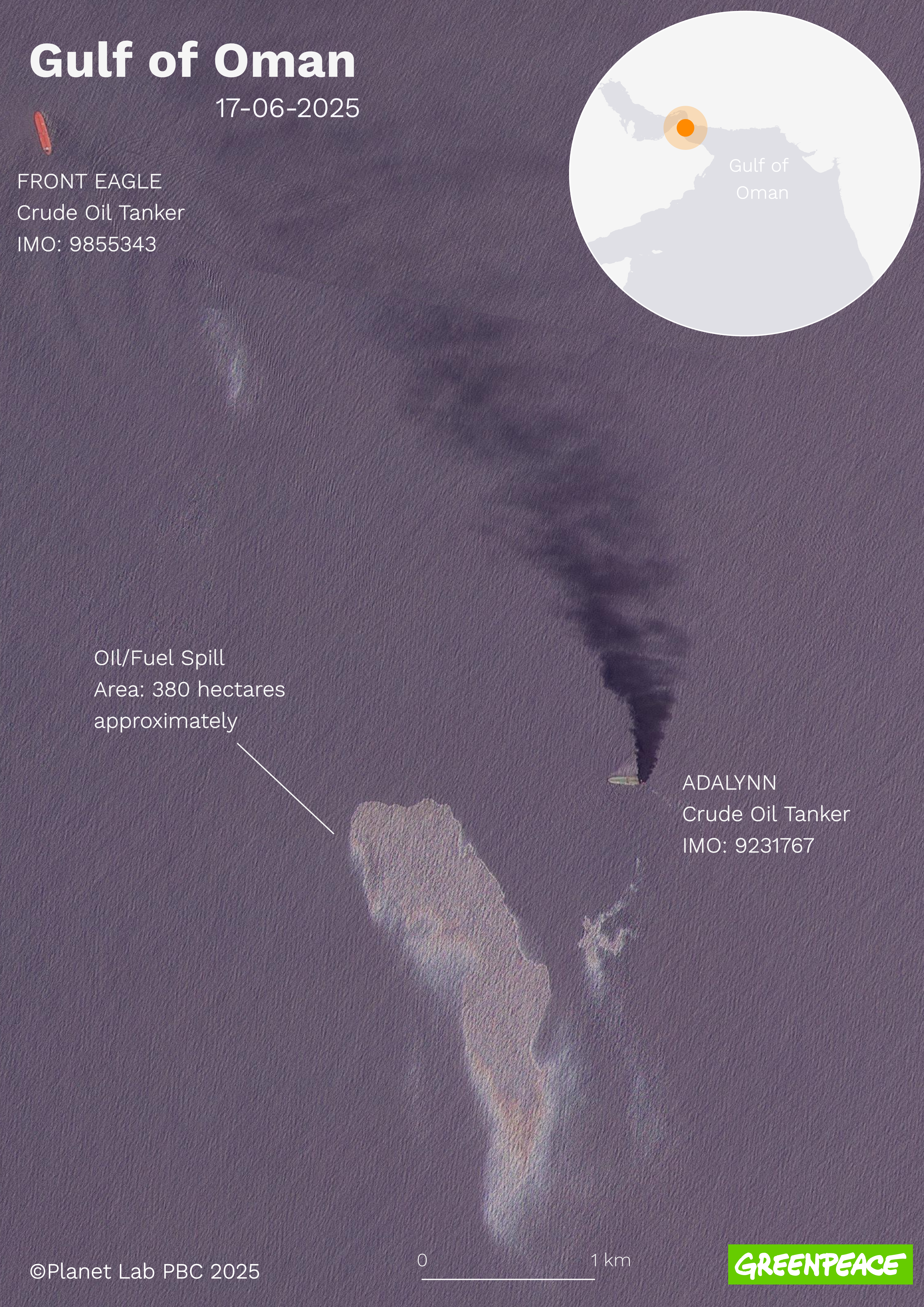London, UK – Fishing cargo vessels operating in pristine Antarctic waters are failing a majority of their safety inspections, Greenpeace International analysis of Port State Control inspection records has found. The 26 refrigerated cargo vessels (or ‘reefers’) recorded transferring catch from fishing boats in the Antarctic in the period 2017-2019 failed 70% – 119 out of 168 – of their environmental and workers’ safety inspections in the same period. [1] In one case, a reefer reportedly carrying heavy fuel oil in Antarctic waters, a substance forbidden in the area, crashed into an iceberg, before later sinking in the South Atlantic. The owner disputes that the vessel was carrying heavy fuel oil at the time and the case is subject to ongoing legal proceedings. [2]
The Greenpeace International report, Fishy Business, maps out the murky world of ‘transhipment’ and highlights how it enables illegal, unreported and unregulated fishing. A detailed analysis of more than 1600 reefers found that just seven major fishing powers and 250 vessels dominate transhipment on the high seas”.
More than two thirds of reefers transhipping in Antarctic waters in the last three years are operated by Laskaridis Shipping Ltd, owned by Greek shipping magnate Thanasis Laskaridis. According to analysis of the data from each individual vessel’s Inspections & Detentions record on Lloyd’s List Intelligence, the company’s reefers operating in the Antarctic have a 60% failure rate of safety inspections during the period they were owned by Laskaridis, with six of their vessels being detained in port between 2017 and 2019. [3] [4]
Will McCallum of Greenpeace’s Protect the Oceans campaign said: “The shocking environmental safety record of transhipment vessels in the Antarctic is a ticking time bomb. If it is left unchecked it could cause untold harm to this fragile ecosystem. These vessels are operating in an almost pristine environment so it’s vital they operate with the highest environmental safety standards, but this is clearly not the case. The Antarctic Ocean Commission must stop vessels with such poor records from entering this wilderness and create a register of permitted reefers, which are required to have onboard observers.
“Transhipment is the lifeblood of the distant water fishing industry and facilitates some of the worst environmental and human rights abuses at sea. These abuses happen out of sight and out of mind, and so are at greater risk of being ignored. If we’re going to protect the oceans, it’s critical that governments agree an ambitious Global Ocean Treaty this year to create areas off-limits to harmful human activity and to close the loopholes in global ocean governance that lead to overfishing and unsustainable practices at sea.”
Transhipment involves transferring catches from fishing boats to refrigerated cargo ships. Reefers also resupply fishing boats, allowing distant water fleets to stay active at sea for months without returning to port. This facilitates overfishing and has been linked to serious abuses of human and workers’ rights at sea. It also enables fishing vessels to land illegal, unreported and unregulated (IUU) catches into the global market.
Last Friday, Greenpeace activists boarded the refrigerated cargo vessel Taganrogsky Zaliv, linked to Laskaridis Shipping Ltd, on its way to tranship in Antarctic waters. The activists conducted an inspection, confirming the vessel was carrying catch from an unregulated fishery, squid caught in the South Atlantic Ocean. In the days prior to boarding, activists requested the reefer leave Antarctic waters several times, and in a peaceful and safe protest attempted to deliver a fender painted with the message “Ocean Destroyer”. The fender was found washed up on Elephant Island, an important Antarctic penguin colony, demonstrating irresponsibility on the part of the industry.
McCallum said:“We are here to deliver a strong message to this industry: the pristine waters of the Antarctic are not their playground. This special place is one of Earth’s last remaining wildernesses, and transhipping by vessels complicit in unregulated fishing is not welcome here”.
ENDS
Photo and video is available here
The full report, Fishy Business: How Transhipment at Sea Facilitates Illegal, Unreported and Unregulated Fishing That Devastates Our Oceans, can be found here.
Case studies illustrating the dangers of transhipment in Antarctic waters are available within the report, with further details on these available on request.
Notes:
[1] Greenpeace International analysed the Port State Control history of 26 reefers transhipping in CCAMLR waters between 2017-2019, finding that 70% (119 out of 168) failed their safety and environmental inspections. According to Lloyd’s List intelligence, these same owners have presided over a failure rate of 59% in the period since their ownership of these reefers began, with 370 failed inspections out of a total of 632. Greenpeace International defines failure as at least one deficiency during an inspection. The majority of inspections recorded several deficiencies.
11 of these vessels recorded deficiencies in Annexes I, IV, V and VI of the International Convention for the Prevention of Pollution from Ships (MARPOL), covering pollution from oil, sewage, garbage and exhaust emissions respectively. ‘Safety of navigation’ and various forms of laxity related to fire safety and prevention are recurring problems, suggesting that the vessels pose a significant risk of accidents and collisions. The inspections also raise questions about workers rights for the crews, with 14 vessels recorded with deficiencies associated with living and labour conditions.
[2] See, for example: https://en.mercopress.com/2017/05/11/falklands-worried-m-v-uruguay-reefer-seems-doomed-to-sink-in-the-islands-conservation-zones
https://www.thetimes.co.uk/article/penguins-at-risk-from-oil-as-ship-sinks-pxtbkjb9m
A full case study write up of this incident is available in the report.
[3] Will McCallum is Head of Oceans at Greenpeace UK
[4] The Lavinia Group and Mr Laskaridis were provided an opportunity to comment on the report and denied the accuracy of the information from Lloyd’s List Intelligence regarding safety inspections from 2017-2019, suggesting that some of the ships identified by Lloyd’s List as being owned by them are not owned by them and that some vessels named refer to multiple vessels, without specifying which information they dispute. They note that the practice of transhipment itself is legal and state that they take measures beyond the industry norm to ensure that they are not involved with any form of illegal cargo.
Contact:
James Hanson, Press Officer, Greenpeace UK: +44 7801 212 994, [email protected]



